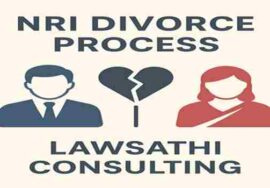How to Make a Valid Contract
Keywords: how to make a valid contract, Indian Contract Act 1872, essential elements of a valid contract.
📘 Introduction
In today’s business and personal transactions, contracts form the backbone of trust, responsibility, and legal protection. Whether it’s buying property, starting a partnership, or hiring services, every agreement must comply with the Indian Contract Act, 1872, to be legally valid and enforceable.
This article explains how to make a valid contract in India — outlining all the essential elements and legal requirements you must follow to ensure your agreement stands strong in a court of law.
⚖️ What Is a Valid Contract?
Under Section 10 of the Indian Contract Act, 1872,
“All agreements are contracts if they are made by the free consent of parties competent to contract, for a lawful consideration and with a lawful object, and are not hereby expressly declared to be void.”
In simpler terms, a valid contract is an agreement that the law recognizes and enforces. If any essential element is missing, the agreement becomes void or unenforceable.
🧾 Step-by-Step: How to Make a Valid Contract in India
To ensure your agreement is legally sound, follow these key steps:
- Lawful Offer and Acceptance
A valid contract begins when one party makes a lawful offer and the other gives a lawful acceptance.
Both must clearly agree to the same terms — this is called consensus ad idem (meeting of minds).
✅ Example: A offers to sell his car to B for ₹3,00,000, and B accepts in clear terms.
- Intention to Create Legal Relationship
The agreement must be intended to create legal obligations, not merely social or moral ones.
❌ Example: A promise to meet for dinner is not a contract.
✅ Example: A promise to deliver goods for payment is a valid contract.
- Lawful Consideration
Consideration means something of value exchanged between parties — money, goods, or services.
It must be real, lawful, and not immoral or illegal.
- Capacity of Parties
Under Section 11, the parties must be:
Of sound mind (Section 12),
Not minors (18 years or older), and
Not disqualified by law (such as insolvent or alien enemy).
If a party is a minor or of unsound mind, the contract is void ab initio (invalid from the beginning).
- Free Consent
Consent must be given freely, without:
Coercion (Section 15)
Undue Influence (Section 16)
Fraud (Section 17)
Misrepresentation (Section 18)
Mistake (Sections 20–22)
If consent is obtained through any of these, the contract becomes voidable at the option of the affected party.
- Lawful Object and Consideration
Under Section 23, the purpose of the contract must be lawful.
Agreements with unlawful, fraudulent, or immoral objects are void.
❌ Example: A contract for smuggling goods is illegal and void.
✅ Example: A contract for supply of furniture is lawful.
- Certainty and Possibility of Performance
The terms of the contract must be clear, definite, and possible to perform.
Agreements that are vague or impossible to perform are void under Sections 29 and 56.
❌ Example: A agrees to deliver “a few quintals of something” — vague and invalid.
- Not Expressly Declared Void
Certain agreements are expressly void under the Act, such as:
Agreements in restraint of marriage or trade
Wagering agreements (betting or gambling)
Agreements with uncertain meaning
Always ensure your contract doesn’t fall into these categories.
📜 Example of a Valid Contract
A agrees to sell his house to B for ₹50 lakh. Both are competent adults, consent freely, the object is lawful, and consideration is genuine.
🏛️ Why Valid Contracts Are Important
Ensure legal enforceability in case of disputes.
Protect parties’ rights and obligations.
Avoid frauds and misunderstandings.
Provide clear remedies for breach of contract.
💡 Pro Tips for Drafting a Valid Contract
Always put agreements in writing (even if oral contracts are legally valid).
Use clear, unambiguous language.
Include essential clauses — payment, termination, dispute resolution, and jurisdiction.
Use stamp paper of proper value and get it notarized or registered if required.
Get your contract drafted or reviewed by a qualified advocate.
If you need professional help in drafting, vetting, or registering contracts, consult an experienced contract lawyer.
🏛️ You May Contact a Legal Expert
Specialized in Contract Drafting, Business Agreements, and Legal Documentation.
Disclaimer: This article is for educational and informational purposes only. It provides a general understanding of legal remedies but does not constitute legal advice. For specific legal guidance, you can consult a legal expert.



